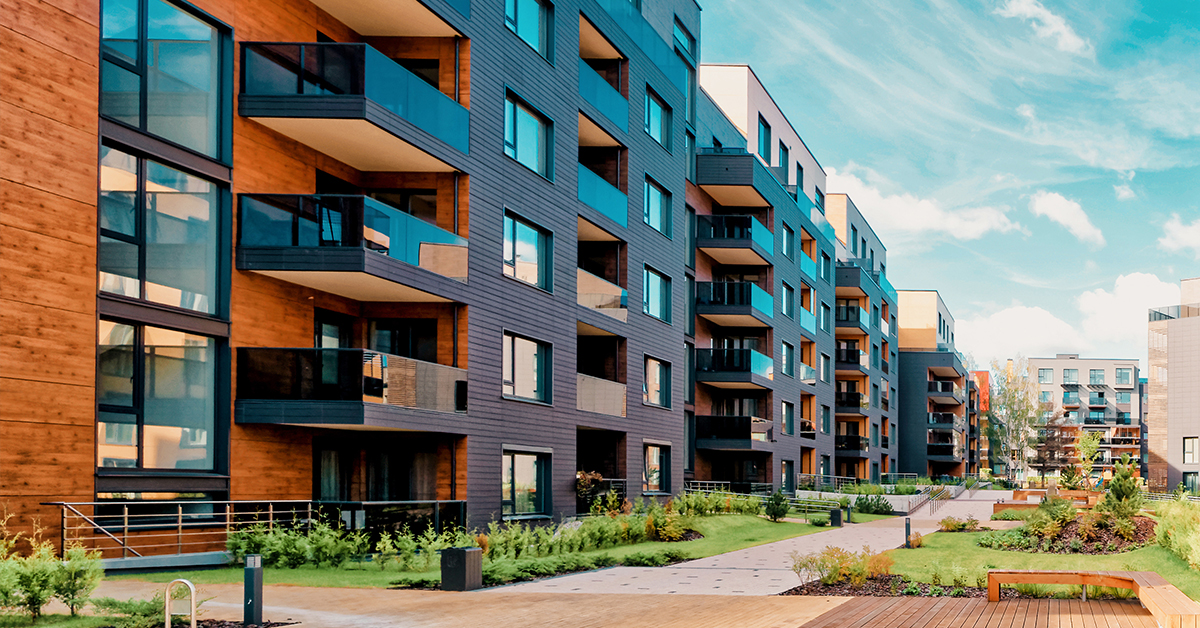The Role of an HOA in Establishing and Enforcing Community Standards for Homeowners
The role of a Homeowners Association (HOA) in establishing and enforcing neighborhood guidelines is fundamental to maintaining a orderly and cohesive residential environment. By creating clear rules that govern aspects such as residential property maintenance and neighborhood conduct, the HOA not only sets criteria for homeowners but also cultivates a feeling of belonging and responsibility.
Understanding Property Owners Associations
Homeowners organizations (HOAs) serve as governing bodies for property neighborhoods, playing a critical function in keeping building worths and cultivating a feeling of neighborhood. Usually formed by programmers, HOAs are made up of homeowners within a marked area that elect a board to oversee the organization's activities. The key functions of an HOA consist of implementing community regulations, handling usual areas, and arranging community occasions.
HOAs operate under a collection of governing records, including commitments, conditions, and constraints (CC&R s), which describe the civil liberties and obligations of homeowners. These guidelines intend to guarantee that homes are kept to a certain criterion, thereby securing the visual appeal and general worth of the community. Additionally, HOAs usually collect fees from home owners to money maintenance, landscaping, and other area solutions.
The presence of an HOA can substantially influence the living experience within a neighborhood (hoa condo). While some citizens value the organized setting and amenities offered, others might discover particular laws limiting. Stabilizing the passions of all home owners is important for an HOA to work efficiently, making certain that it serves its intended purpose of enhancing community living while respecting specific homeowner rights
Developing Community Guidelines

To begin, an HOA must conduct studies or hold conferences that allow locals to voice their recommendations and concerns. This participatory process fosters a sense of ownership and increases compliance. Next, the HOA board must analyze the feedback to identify common themes and priorities that warrant official incorporation in the standards.
It is additionally vital to make certain that the standards are clear, succinct, and quickly comprehended. Ambiguities can lead to misunderstandings and problems, weakening the purpose of the guidelines. The standards should be thorough, covering numerous elements of community living, consisting of property upkeep, noise degrees, and use of common locations.
Enforcement of Policies
Effective enforcement of area guidelines is vital for keeping order and making certain that all residents adhere to the developed standards. An HOA must carry out an organized strategy to enforce these guidelines, which commonly involves a combination of surveillance, communication, and penalties for non-compliance.
First, regular inspections and area patrols can help recognize violations, making sure that policies are regularly used across the area. This positive monitoring permits the HOA to address problems prior to they escalate, fostering a feeling of accountability amongst residents.
Second, clear interaction is necessary. Locals need to be informed of the guidelines and the treatments for reporting violations. An open line of communication motivates homeowners to voice concerns and seek information on standards, which can boost compliance.

Finally, when infractions happen, the HOA must enforce effects as detailed in the governing documents. By effectively applying policies, an HOA can cultivate a harmonious living setting that shows the collective worths of its citizens.
Benefits of HOA Rules
Many benefits arise from the execution of HOA policies, which serve to improve the quality of life within an area. One main advantage is the upkeep of property worths. By imposing criteria for aesthetics and maintenance, HOAs ensure that homes and typical areas stay attractive, cultivating a desirable living setting that can lead to raised home worths gradually.
Furthermore, HOA regulations advertise consistency and harmony within the neighborhood. This coherence in style and upkeep aids to produce a sense of belonging amongst residents, adding to area pride and a positive ambience. Established standards promote conflict resolution among next-door neighbors by giving clear expectations and procedures for habits, therefore minimizing conflicts.
An additional substantial advantage is the provision of shared facilities and services. Lots of HOAs handle area centers such as parks, swimming pools, and clubhouses, which improve leisure possibilities for locals. These facilities not just enhance the top quality of life yet additionally urge social communication.
Inevitably, the laws established forth by an HOA grow a well-organized, harmonious community, guaranteeing that citizens take pleasure in a high requirement of living while promoting a helpful environment for all property owners.
Typical Obstacles Dealt With by HOAs
Amidst the benefits that home owners organizations (HOAs) can supply, they likewise come across a selection of obstacles that can impede their effectiveness. One significant concern is the lack of resident involvement. Lots of property owners may not get involved in conferences or community activities, causing a detach between the HOA board and residents. This disengagement can cause misunderstandings about area guidelines and a lack of assistance for enforcement efforts.
One more challenge is the enforcement of policies and regulations. Conflicts can develop when homeowners really feel that enforcement is inconsistent or prejudiced, possibly bring about disputes within the community. Additionally, HOAs frequently encounter financial restrictions, which can restrict their capacity to preserve usual areas or fund neighborhood tasks. This can create discontentment amongst homeowners who expect high criteria of maintenance.
In addition, browsing lawful complexities can be daunting for HOAs. They must ensure compliance with state regulations while handling their very own governing papers, which can be a source of confusion. Developing and changing demographics area needs need HOAs to adjust their guidelines, frequently meeting resistance from long-lasting citizens who are accustomed More about the author to standard standards. Attending to these difficulties is crucial for cultivating a unified and thriving neighborhood.
Verdict

By formulating clear policies that control aspects such as residential property upkeep and area conduct, the HOA not just sets requirements for homeowners but also promotes a sense of belonging and liability.Homeowners organizations my link (HOAs) serve as regulating bodies for property areas, playing an important function in keeping home worths and cultivating a feeling of area. Many property owners might not participate in conferences or community activities, leading to a disconnect between the HOA view publisher site board and locals. Progressing and transforming demographics area needs call for HOAs to adjust their standards, usually fulfilling resistance from long-lasting residents who are accustomed to traditional norms. Through the growth of clear laws and regular enforcement, HOAs promote residential property upkeep, neighborhood pride, and count on among residents.